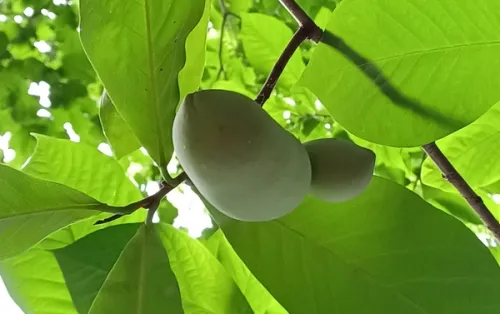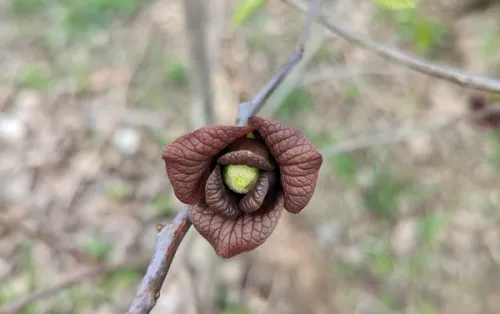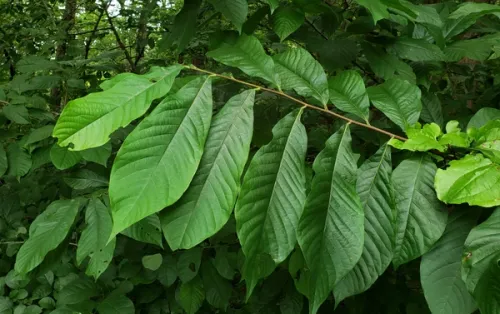Back to Glossary
Common Pawpaw
Asimina triloba
Common Pawpaw is a small, deciduous tree or large shrub typically reaching 15 to 25 feet in height. It thrives in the understory of larger trees or in partially shaded, moist areas, making it ideal for woodland gardens or as a naturalized element in larger landscapes. In early spring, before the foliage emerges, it produces unusual, cup-shaped purple flowers that are not only visually striking but also attract pollinators. By late summer to early fall, these flowers give way to large, delicious green fruits that taste similar to bananas and are rich in nutrients. The fruit is highly prized by both humans and wildlife, including birds and mammals. The tree's large, drooping leaves turn yellow in the fall, providing seasonal interest.
Details
Height180” - 360”
Spread270"
Bloom SeasonApril – May
Soil Types
Loam
Sand
Soil Moisture
Medium
Moist
Wet
Sun Exposure
Part Sun
Full Sun
Range Map
Available
Not available
Ecological Benefits
Maintenance Tips
- Prefers moist, well-drained soil; water regularly, especially during dry periods.
- Minimal pruning needed; prune for shape and health in the late winter or early spring.
- Thrives in rich, fertile, slightly acidic soils.
- Apply mulch to maintain soil moisture and temperature.
- Pawpaw trees are relatively pest-free but watch for potential fungal diseases in humid conditions.
- Will produce many delicious fruits late in the season once mature - keep your eyes out!







